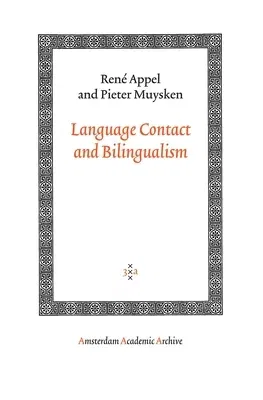Rene Appel
(Author)Language Contact and BilingualismPaperback, 1 July 2006

Temporarily out of stock
Free Delivery
Cash on Delivery
15 Days
Free Returns
Secure Checkout

Part of Series
Amsterdam Academic Archive
Part of Series
Amsterdam University Press - Amsterdam Archaeological Studie
Print Length
228 pages
Language
English
Publisher
Amsterdam University Press
Date Published
1 Jul 2006
ISBN-10
9053568573
ISBN-13
9789053568576
Description
Product Details
Authors:
Book Format:
Paperback
Country of Origin:
US
Date Published:
1 July 2006
Dimensions:
24.41 x
16.99 x
1.22 cm
ISBN-10:
9053568573
ISBN-13:
9789053568576
Language:
English
Location:
Amsterdam
Pages:
228
Publisher:
Weight:
367.41 gm